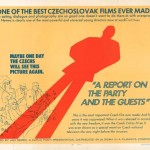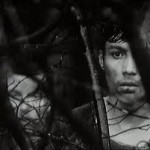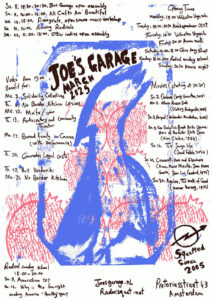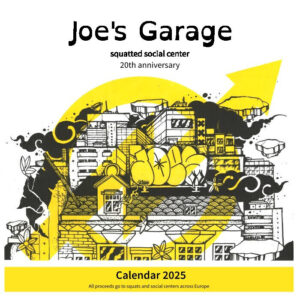Sunday April 14th 2013, Czech film night with a double bill, Joseph Kilian (“Postava k podpírání” original tile, from Pavel Juráček, 1965, 38 min.) and A Report on the Party and the Guests (“O slavnosti a hostech” original title, from Jan Němec, 1966, 70 min.). English subtitles. Door open at 20pm, films begin at 21:00.
Joseph Kilian (“Postava k podpírání” original tile, from Pavel Juráček, 1965, 38 min.)
A year after Franz Kafka’s work had been translated from German into his native Czech, this experimental feature was full of Kafka’s tone and style. The story is about Harold, an isolated figure in an overwhelming world of totalitarian bureaucracy. Harold tries to find the elusive Joseph Kilian, an old acquaintance, in Prague. When Harold stumbles across a state-run cat-lending store, he impulsively rents a feline for the day. Later, he attempts to return the cat and finds that the store no longer exists. Now with a furry companion, Harold continues his search for Kilian. Written and directed by Pavel Juracek, this 40 minute film effectively aims its allegorical shots at personality cults and the absurdities of a totalitarian regime. […Lees verder]





